 Sponsored content
Sponsored content
The producers vying for the Broadcast Awards 2019 Best Independent Production Company, sponsored by Barclays, reveal the secrets of their success
CPL Productions
Key shows: Old People’s Home For 4 Year Olds, A League Of Their Own, Harry Hill’s Alien Fun Capsule

What achievement are you most proud of in the past year?
We are incredibly proud of the second series of Old People’s Home For 4 Year Olds, which, as well as creating ratings and profile for Channel 4, has had an enormous impact away from the airwaves on how we deal with the aging population in the UK.
We’ve also worked with an incredible range of fantastic talent and broadcasters and were delighted to win more awards than ever before, including one for production company of the year and a Grierson.
What has been the biggest challenge in production in the past year and how did you overcome that issue?
Maintaining and improving quality on screen whilst dealing with an increasing pressure on production budget.
What business models have you used to get your projects in production?
With the help of Red Arrow Studios International we have used distribution advances to part fund programming. We have worked as co-producer alongside on-screen talent and have worked with Motion Content Group.
In a couple of circumstances, we have invested additional time and resources over and above the production budget to ensure the success of our programmes. We have also used brand funding and product placement to help fund.
Where will you be focusing your development and production efforts in 2019?
We will be building on the success or our factual formats such as Old people’s Home For 4 Year Old’s. Our next factual format, The Restaurant That Makes Mistakes, is in production and will air on C4 this year.
In addition, we will continue to build strong relationships with on screen talent and support them in getting their ideas to screen. We will also continue to build on the success of A League Of Their Own for Sky1, which will be returning for a fourteenth series later this year.
What is your prediction for the production business in 2019?
With the focus on streaming services on international markets, it looks like the industry will expand and enjoy a new golden era.
Fulwell 73
Key shows: Carpool Karaoke, Bros: After The Screaming Stops, The Late Late Show With James Corden
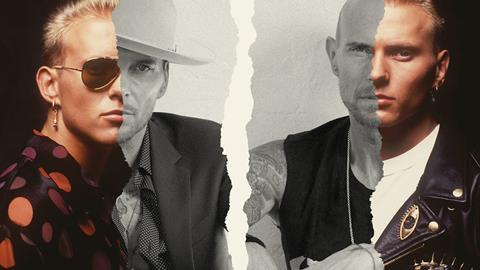
What achievement are you most proud of in past year?
Carpool Karaoke on Apple was always going to be a big series, especially as it was Apple’s first foray into television but we didn’t want to do a spin-off from The Late Late Show that lacked ambition.
With A list names and the fact the series is free-to-air on every person’s iPhone around the globe, we knew it would be big.
But how many companies would have taken a risk on a feature documentary about 1980s band Bros? It wasn’t going to necessarily be a profitable or widely recognised project and it didn’t even have a broadcaster attached when we started.
Yet thanks to great film-making, it became the most viewed show on the BBC iPlayer over the busy Christmas period and what GQ called “the best music documentary of all time”.
What has been the biggest challenge in production in the past 12 months and how did you overcome that issue?
Having always seen ourselves as the upstarts in this industry and prided ourselves on being able to operate nimbly, refusing to follow the herd, taking creative risks and working across all platforms and genres, our biggest challenge was maintaining that culture and attitude, while still allowing for growth.
We’re empowering our fantastic teams both in the UK and LA to think bigger and bolder, both with regards to individual projects and wider business strategy and by continuing to only employ staff who share our vision for how we want to continue to build the Fulwell family.
What business models have you used to get your projects in production?
We have always been agnostic in our approach to funding, whether it be pre-selling to an all rights buyer, putting the jigsaw of finance together with a combination of pre-sales, soft money and gap or fully funding through equity, whether that be from internal funds or third party.
There is no single right answer for how to fund content and often the model we utilise changes from genre to genre and platform to platform.
Where will you be focusing your development and production efforts in 2019?
Without ever losing the diversity of our slate, we are certainly looking to focus our new strategic energy towards scripted content. This wasn’t a priority at the start of our business but has now become very important.
Our first foray into this space is proving to be successful. From a standing start 12 months ago, we now have one show on air, one more in production and eight further shows sold to the various US networks.
Alongside this, big event television, both in the US and UK is an area of growth focus for us. The success of two productions in particular; Stand Up To Cancer and The Global Citizen Event, have led to further opportunities in this space.
What is your prediction for the production business in 2019?
Anyone who claims to be able to predict the direction of the production business in 2019 is lying! Never have we lived in a more uncertain and at the same time exciting world for content creators.
Questions remain around the impact that several high-profile key players will have on the business; what will Apple’s new launch mean to its buying strategy? Will Netflix and Amazon become more local market-focused? How will Google’s strategy change with a move away from scripted? Will Spotify and Facebook become true players in the business? How will the traditional networks and studios react to the ever-changing market and what impact will their streaming services have?
And will Quibi change the game for all of us?
World Productions
Key shows: Save Me, Bodyguard, Line Of Duty
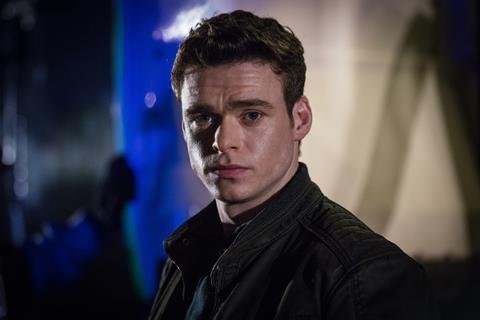
What achievement are you most proud of in past year?
It was great to prove that there is still an audience wanting to watch drama live, week by week.
What has been the biggest challenge in production in the past year and how did you overcome that issue?
After months of negotiation and having signed a location agreement, a mainline UK railway station withdrew filming permission from us with less than 48 hours’ notice.
Despite this, ingenuity and further months of planning took us to a week-long night shoot on a private railway in Norfolk to create Bodyguard’s thrilling opening sequence.
What business models have you used to get your projects in production?
Our main business model remains UK licence fee plus tax credit plus soft money plus international sales advance.
Where will you be focusing your development and production efforts in 2019?
Across the board. The number of potential drama buyers in the U.K. and beyond is greater than at any time during my career. That’s very exciting.
What is your prediction for the production business in 2019?
In an overheating market, buyers may use increasing number of suppliers as a way of challenging producers to reduce the size of high-end drama budgets.
Sid Gentle Films
Key shows: The Durrells, Killing Eve, SS-GB
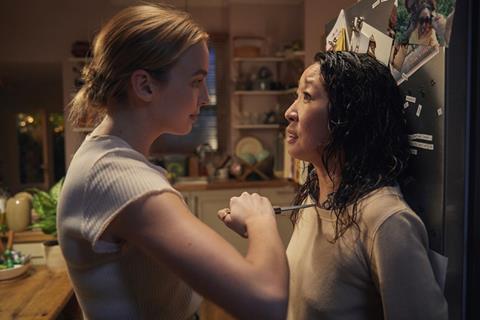
What achievement are you most proud of in past year?
We are so proud of producing what we hope will be a standout farewell series of The Durrells, and the extraordinary friendships which have been developed in the UK and Corfu.
Another high point has been the success of Killing Eve, and how it’s been so lovingly embraced by fans the world over. We’re also delighted to have found such a supportive and creative partnership in BBC Studios.
What has been the biggest challenge in production in the past year and how did you overcome that issue?
The biggest challenge has been bringing a second series of Killing Eve to fans in such a short amount of time while trying to remain unphased by what the rest of the world is saying about it.
Business-wise it has been dealing with fluctuations in the exchange rate and increasing costs across the board.
What business models have you used to get your projects in production?
We are increasingly reliant on distribution and co-production advances. In addition, we always need to maximise the tax credit. Without that, we wouldn’t be able to properly realise the ambition of our projects.
Where will you be focusing your development and production efforts in 2019?
We will continue to look for shows which feel different, quietly subversive, creatively individual and authored and properly European.
What is your prediction for the production business in 2019?
We genuinely have no idea, but people aren’t going to tire of good, well told stories and if we can weather Brexit and retain the UK tax credit then creative people always find a way to deliver.
The Forge
Key shows: Ackley Bridge, Kiri, Collateral
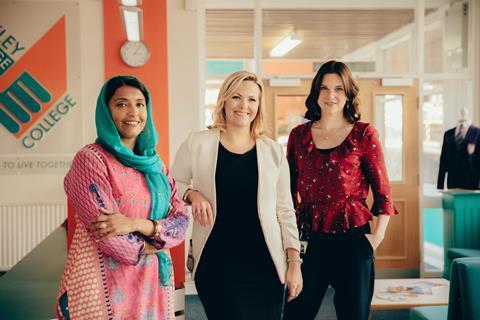
What achievement are you most proud of in past year?
Kiri being the most watched drama on Channel 4 since modern records began; for a complex, chewy exploration of race, class and blame to play to a huge audience was thrilling.
And persuading Beth Willis to join the company this autumn. We’ve loved working with Beth in her role as Channel 4 head of drama and she’s a fantastic addition to the team.
What has been the biggest challenge in production in the past year and how did you overcome that issue?
We’re committed to championing new and diverse voices on Ackley Bridge; in the first two series we gave six writers their first hour of TV drama and it’s a real runway for talent.
However, we’re always conscious of trying to balance that desire to grow new talent with the ambition of a show that can be challenging to write.
This year we set up a shadow scheme to help us identify new writers we’re excited by, grow our relationship with them, give them the experience they need to write on the show and increase the chances of success all round.
What business models have you used to get your projects in production?
Our approach is fairly simple – we pursue the most exciting writers and the most original, surprising and engaging stories we can find.
We encourage those writers to tell those stories as boldly and ambitiously as they can. We think hard about where those stories would fit and work closely with the commissioners to deliver at every level.
Where will you be focusing your development and production efforts in 2019?
See above!
What is your prediction for the production business in 2019?
It’s massively competitive and only getting more so, but the continuing explosion in drama makes it a wonderful time to be developing and producing.
Spun Gold
Key shows: The Real Full Monty, The Real Full Monty: Ladies Night, Great Canal Journeys

What achievement are you most proud of in past year?
Being nominated for Broadcast’s best production company. It’s recognition by our peers, testament to the amazing work of all the execs, producers, editors, PMs and others that have worked so hard on all our shows, including the returning series we are so proud of and the first royal wedding to be produced by an indie.
What has been the biggest challenge in production in the past year and how did you overcome that issue?
The increasing demand from broadcasters to bring in financing from other sources, including co-production deals and distribution advances. In addition, broadcasters are wanting shows to be developed to such an extent they are almost in pre-production before they commit to an idea.
There also seems to be a move towards spending less money but wanting more on-screen.
What business models have you used to get your projects in production?
Co-productions, format deals, distribution advances, self-funded and fully-funded projects and ad sponsorships.
Where will you be focusing your development and production efforts in 2019?
Developing new formats and continuing to extend our reach into the US and SVoD platforms following the recent success of commissions from Nat Geo, TLC, Fox and True Royalty TV.
What is your prediction for the production business in 2019?
An ever more challenging commercial arena in terms of IP ownership and financing.
























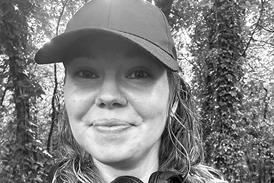








No comments yet